Iran Negotiator: ‘Creativity’ Needed In Nuclear Talks
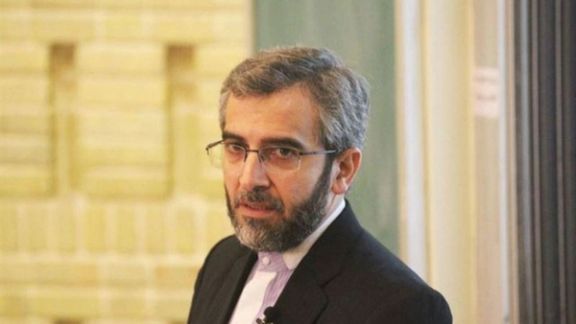
Being near a finishing line was different to crossing it, Iran’s chief negotiator in the Vienna nuclear talks tweeted Thursday.

Being near a finishing line was different to crossing it, Iran’s chief negotiator in the Vienna nuclear talks tweeted Thursday.
Reaching agreement over reviving the 2015 Iran nuclear deal, Ali Bagheri Kani wrote, “requires extra caution, much perseverance, additional creativity and balanced approach to take the last step… To finish the job, there are certain decisions that our western interlocutors need to take.”
Talks in Vienna have faced the challenge of identifying which United States sanctions contravene the 2015 agreement, which the US left in 2018, and exactly how Iran’s nuclear program, expanded since 2019, would be brought back within the limits of the agreement, the JCPOA (Joint Comprehensive Plan of Action).
Bagheri-Kani returned to Tehran Wednesday night for consultations, leaving colleagues to continue discussions. Iran’s foreign ministry announced his return to Tehran should not be seen as a sign of imminent agreement in Vienna.
Iranian Foreign Minister Hossein Amir-Abdollahian spoke by phone Thursday with his British counterpart Liz Truss, saying that restoring the JCPOA needed “a serious will to make a courageous and realistic political decision” that recognised Iran's interests and secured stability. Tehran has sought guarantees that the US would not again leave the JCPOA.
Amir-Abdollahian told Truss that the United Kingdom needed to pay a £400-million (around $540-million) debt owed Iran since 1971.
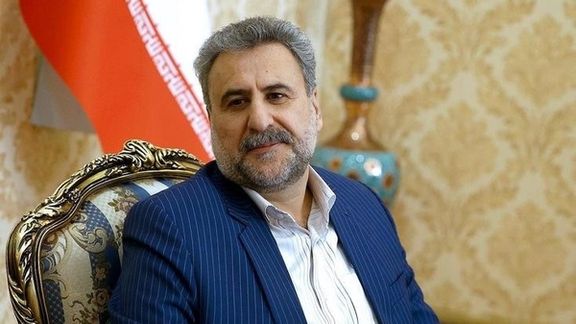
A former senior Iranian lawmaker, Heshmatollah Falahatpisheh, has joined other prominent figures calling for direct talks with Washington and a "ceasefire".
Falahatpisheh, the former chair of parliament's national security and foreign policy committee, told the Iranian Labour News Agency (ILNA), that although it appears a nuclear agreement is within reach, still Iran and the United States need “a cease-fire” whereby Iran stops any nuclear activity beyond what was agreed in the 2015 deal (JCPOA) and accepts a series of inspections. The United States would release Iran's frozen assets and loosen sanctions on Iran's oil export.
In the past few weeks several top politicians as well as business leaders have called for direct talks with Washington.
Falahatpiseh added that the idea espoused by diplomats that "Nothing is agreed until everything is agreed," imposes hardships on the Iranian people by prolonging US sanctions and is far from the standards of diplomacy. Sticking to this rule will prolong the negotiations and the side which is under sanctions will have to pay a higher cost.
He added that based on information by Western news agencies such as Reuters, and the information given away by Russian negotiator Mikhail Ulyanov, the two sides are headed toward an interim agreement. Such an agreement means that every 90 or 120 days the US president should present a report on Iran's commitment to the deal to maintain the suspension of sanctions. This will continue until a final agreement is made.
"The time wasted in the meantime means losses for both Iran and the United States. Besides, as Tehran has refused to negotiate directly with Washington, the other parties to the JCPOA have defined spheres of interests for themselves," said Falahatpisheh, while the main protagonists are the United States and Iran.
Falahatpisheh explained that Tehran’s problem is that for a long time it has insisted that accommodation with the United States is bad and now it is finding it difficult to convince the nation and even its own supporters that it is moving in the right direction. At the same time, Biden needs to thread carefully not to antagonize the US Congress. All this makes an agreement an arduous and drawn-out process.
This comes while Iran and the United States need to reach to an agreement as soon as possible. Iran particularly needs this to start economic dealings with the rest of the world. At the same time, the world's priority now is the Ukraine crisis.
Another complicating factor is Iran’s insistence that all secondary and non-nuclear sanctions be lifted because these could still adversely affect Iran's economy.
Meanwhile, in interview with reformist Ensaf News website, US-based Iranian political commentator Dariush Sajadi, who usually supports the position of Iran's hardliners, also said that although individuals on both sides ae hopeful about an imminent agreement in Vienna, it is unlikely that the negotiations would lead to a tangible result. Sajadi added that he believes neither Iran, nor the United Stats are really after the revival of the JCPOA.
In America only the democrats are interested in the matter, but they have a fragile situation in the Congress and fear that giving concessions to Iran will be harmful to their narrow majority. He added that although the US side insists that time is running out for an agreement, they do not mind if the negotiations drag beyond the Congressional elections in November.
In Iran, however, Sajadi said, the harsh economic impact of the sanctions has made the people anxious to see results as soon as possible. "If it were not for the pressure of the sanctions, Iran would have never agreed to take part in the negotiations," he added.
Asked how, in his opinion, an agreement will be made between Iran and America, Sajadi said: "I believe they will not reach an agreement."
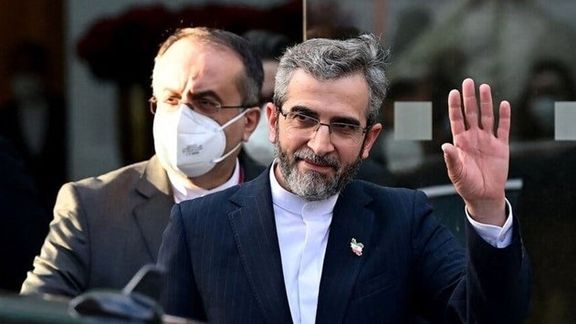
Ali Bagheri Kani, Iran's lead negotiator, returned to Tehran Wednesday night for consultations, leaving colleagues to continue the Vienna nuclear talks.
Behrouz Kamalvandi, spokesman for Atomic Energy Organization of Iran, meanwhile travelled to Vienna for discussions with the International Atomic Energy Agency.
But Iran’s foreign ministry announced that Bagheri Kani’s return to Tehran should not be seen as a sign of imminent agreement between Iran and world powers over reviving the 2015 nuclear deal, the JCPOA (Joint Comprehensive Plan of Action).
Reuters also cited an Iranian official that "if the talks collapse, Washington will be responsible for it and also for its consequences." While accepting “good progress” had been made in the talks, the official said decisions were still needed elsewhere. “Our country's fate is not linked to this deal,” the official said.
Iran’s official news agency IRNA also appeared to play down the significance of Bagheri Kani’s trip to Tehran, noting that senior negotiators from the three western European countries in the talks – France, Germany, and the United Kingdom – had also taken consultative trips away from Vienna this week.
The head of the French delegation in the talks, Philippe Errera, told Iran International Wednesday evening there would be "no pause" in negotiations. "We will continue until we reach an agreement or announce the collapse of negotiations next week,” Errera said.
Participants in the talks have spoken more openly in recent weeks that has been usual in the ten months of the talks, which have run, with pauses, since April. United Kingdom lead negotiator Stephanie Al-Qaq tweeted Wednesday that she had met with Bagheri Kani before he set off for Tehran.
Expectations that the talks were near concluding have been building for over a week. Mikhail Ulyanov, Russia’s lead negotiator in Vienna, tweeted Tuesday that negotiations were “apparently… about to cross the finish line.” Both Al-Qaq and Enrique Mora, the EU official chairing the talks, said Tuesday that crucial issues remained to be agreed.
In a joint news conference with his visiting Omani counterpart earlier Wednesday, Iranians Foreign Minister Hossein Amir-Abdollahian said a “sensitive and important point” had been reached. “We wonder whether the western side can adopt a realistic approach to go through the remaining points of the talks,” he told reporters.
Oman has several times facilitated Iran-United States contacts, both over prisoner swaps and in setting up ‘back door’ meetings before open talks led to the 2015 JCPOA (Joint Comprehensive Plan of Action), the nuclear agreement that the current Vienna process seeks to revive after the US left in 2018.
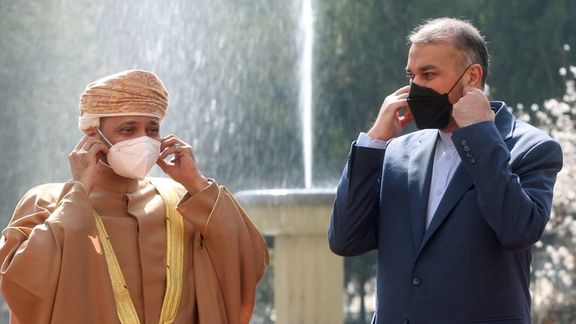
Foreign minister Hossein Amir-Abdollahian said Wednesday that a “sensitive and important point” had been reached in Iran’s nuclear talks with world powers.
"We wonder whether the western side can adopt a realistic approach to go through the remaining points of the talks,” Amir-Abdollahian told a news conference alongside his Omani counterpart Badr Albusaidi in Tehran.
Oman has several times facilitated Iran-United States contacts, including ‘back door’ talks before open talks led to the 2015 JCPOA (Joint Comprehensive Plan of Action), the nuclear agreement that current Vienna talks seek to revive after US withdrawal in 2018.
Muscat has also operated as a channel for discussions over prisoner releases. There has been growing speculation, fed by US Iran ‘special envoy’ Rob Malley and a Reuters story citing Iranian officials, that Tehran and Washington are preparing a prisoner exchange as an adjunct to the Vienna talks.
Amir-Abdollahian said he had underlined to Josep Borrell, European Union High Representative for Foreign Affairs, during the recent Munich Security Conference that Tehran was set on securing guarantees that the US would uphold commitments to restore the JCPOA and would lift ‘maximum pressure’ sanctions imposed since Washington left the deal in 2018.
Mikhail Ulyanov, Russia’s lead negotiator in Vienna, tweeted Tuesday that the talks were near concluding. Both United Kingdom lead negotiator Stephanie Al-Qaq and Enrique Mora, the EU official chairing the talks, said that crucial issues remained to be agreed.
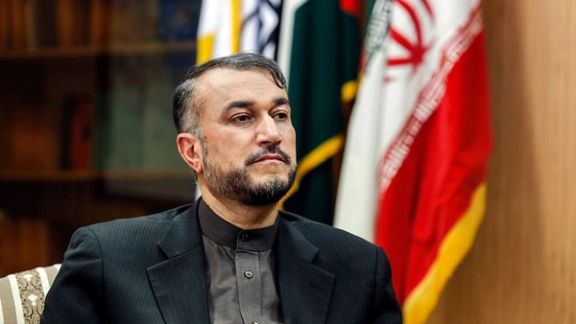
Iran says it has showed flexibility and seriousness in talks with the West over its nuclear policy, now it is time to see initiatives and flexibility in return.
In an interview with Euronews on Tuesday, Hossein Amir-Abdollahian said the agreement could be reached in a matter of hours, but also warned again that some of Iran’s “red lines” remained, reiterating that “We’ve never been so close to such a deal”.
When asked to explain about Iran’s “seriousness and initiatives” at the Vienna Talks, Amir-Abdollahian, said, “we need to make sure there’s harmony between how we’re negotiating in Vienna and the realistic approach of Dr. Raisi’s government”.
“We do not believe that Iran is an isolated country. Unilateral and unlawful US sanctions have led to some problems for us. Inaction since 2015, especially from three European countries…has caused some problems for Iran. But despite all their efforts…the isolation of Iran hasn’t happened”, he added.
Commenting on the issue of a prisoner swap with the West, he described the dual-nationals held by Iran as spies, saying, “We’ve announced that we’re ready, either outside the Vienna talks or alongside them, to exchange prisoners when the other side is ready. We consider this to be a 100% humanitarian issue. We don’t see any necessity to link this humanitarian dossier to the Vienna Talks.”
Iran has arrested several Westerners and dual citizens of Iranian descent on trumped-up charges, described by international human rights organizations as hostage taking.
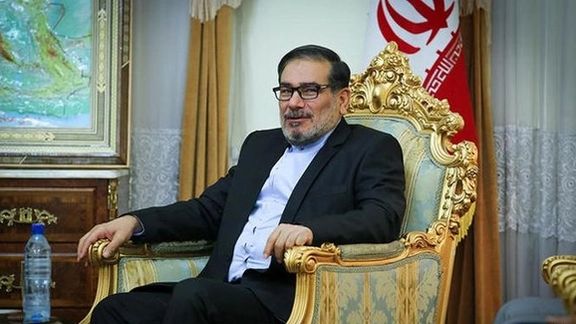
Iran's top security official says Tehran’s “peaceful” nuclear capabilities must always remain like “sword of Damocles” above the heads of the violators of the JCPOA.
The secretary of Iran’s Supreme National Security Council, Ali Shamkhani, made the remarks on Tuesday as top diplomats engaged in the Vienna talks say the negotiations are nearing the finish line.
“Peaceful capability of Iran's nuclear program must always remain like the sword of Damocles above the heads of violators as a real guarantee for fulfillment of their obligations”, Shamkhani tweeted.
“After US withdrawal from JCPOA in 2018, it was better to use this inherent guarantee more effectively”, he added in a tweet.
Shamkhani’s contradictory remark about “peaceful capability” and a “sword” might be referring to Iran’s advanced knowledge of uranium enrichment and its possession of thousands of enrichment machines called centrifuges.
It is not clear if the imminent agreement in Vienna would address Iran’s enrichment infrastructure and the stockpile of refined fissile materials it has built ap in over a year.
Shamkhani has been sounding negative about the negotiations in recent days and insisting on the removal of all sanctions imposed since 2018 when former US president Donald Trump left the JCPOA.
Last week, he said the United States and its European allies have failed to live up to their commitments under the 2015 deal, rendering the JCPOA an empty shell, noting that Iran has not reaped any economic benefit from the agreement.